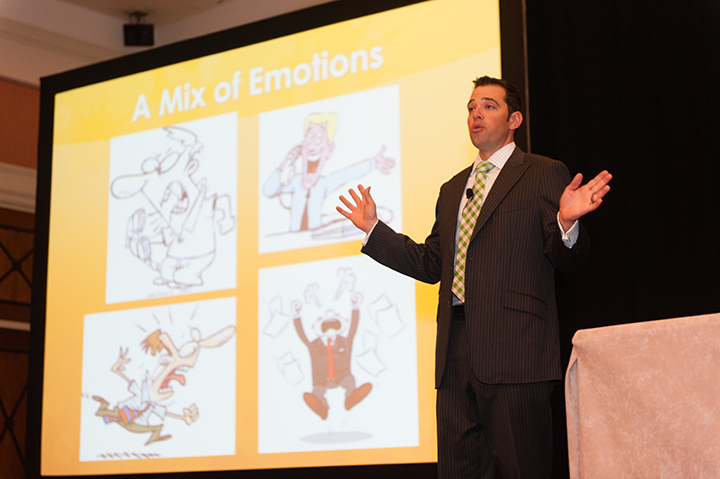Anthony Lambatos of Footers Catering will discuss the importance of strategic planning at CSES2016
--
IMAGINE IF YOU WENT OUTSIDE YOUR home and your neighbor was packing up their car with suitcases, clearly heading for some sort of trip. As a good neighbor you ask, “Where are you going?” to which your neighbor replies, “I don’t know.” So you ask, “OK, how long are you going to be gone?” He responds with, “I don’t know that either.” So you ask, “Well, whom are you going with?” and again he says, “I don’t know.” Finally you ask, “What are you doing?” and he responds with, “I’m getting in my car and I’m going to drive.”
 This may seem like a silly scenario, says Anthony Lambatos, owner and CEO of Footers Catering, Denver, CO, but many people and organizations operate in a similar manner—especially in the catering world. “Professionally they know how to cook or how to plan an event, so they just start catering without thinking about where they want to go, how long it will take, or whom they should bring with them,” he says.
This may seem like a silly scenario, says Anthony Lambatos, owner and CEO of Footers Catering, Denver, CO, but many people and organizations operate in a similar manner—especially in the catering world. “Professionally they know how to cook or how to plan an event, so they just start catering without thinking about where they want to go, how long it will take, or whom they should bring with them,” he says.
“I know my father (and founder of our business) was one of those people. Eventually he found his way and built a successful catering business, but it probably took longer than it should have, had he set out with a plan or taken the thoughts in his head and formally put them on paper.”
There are also many catering companies that build a successful business, says Lambatos, and then fail to spend time thinking about how to improve, and only focus on executing the events. “This is precisely why it is so important to put together a strategic plan for your business each year and make sure that your team actually implements that plan.”
Who, when, where?
The size of your company and your leadership style will determine who should be involved in the process, he states. “It may be something you decide to tackle on your own or you may select three to five key employees to assist with the process.” Lambatos recommends setting aside one to two days (depending on how deeply you wish to dig) and also thinks it is important for the session to take place away from your facility. This helps to focus everyone’s attention on the task at hand and it limits distractions from the day-to-day activities within the business.
Where are you now?
The first important component of writing a strategic plan is to have a solid understanding of where your company currently stands. A simple SWOT (Strengths, Weaknesses, Opportunities, and Threats) analysis is a great way to start, Lambatos suggests. This allows you to spend some time determining where you are in the market, seek out opportunities for improvement, identify your top and bottom performers, and pinpoint what you need to continue doing to remain successful.
Key initiatives
Once you’ve established a solid understanding of where you are, you can decide where you need to go. The initial steps during this process begin with brainstorming ideas on what the key initiatives and core focus will be for the coming year. “I like to then focus time and energy narrowing that list down to three to five overarching goals that set the tone for the most important things the company should be working on,” he says. He also notes it is imperative that good notes are taken and converted into a formal document after the session.
Implementation
Those key initiatives should be converted into goals, then broken down into multi-step action items, given time deadlines, and finally delegated to various team members. This ensures the plan actually gets implemented. “It’s your responsibility as a leader to follow up on the progress throughout the year, at a minimum once a month,” he says.
Lambatos notes that he recently spent two days with his executive team working on a 2016 Strategic Plan for Footers Catering. “We all came away energized and excited about what we had come up with. It gave us a renewed sense of purpose and ensured that we were all ‘rowing’ in the same direction in 2016.”
Finally, suggests Lambatos, “If you haven’t already, I encourage you to take a moment and create your own plan or simply take an hour or two to write down your professional goals for 2016. Where are you going? What do you want to accomplish? Because as they say, ‘If you don’t know where you’re going, you’ll never get there.’”
Anthony Lambatos will be presenting two seminars at CSES2016. Click here for more information.
—Kathleen Stoehr



